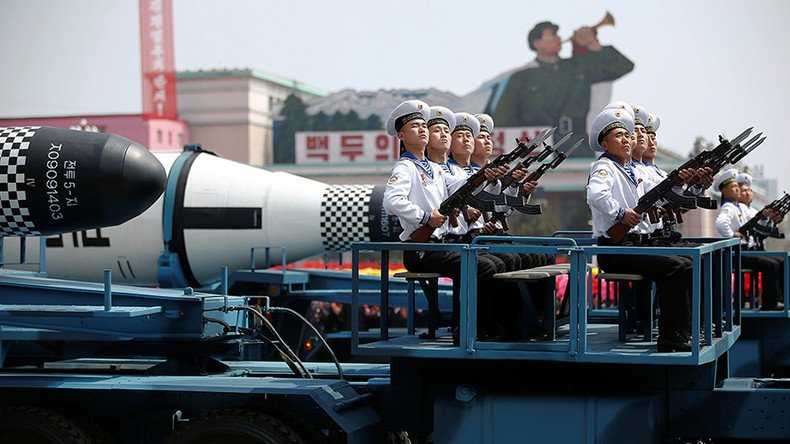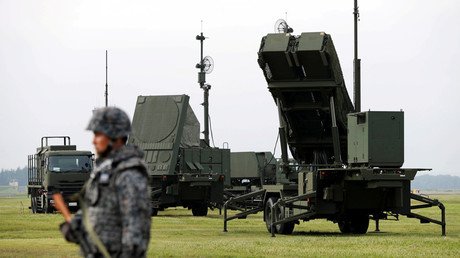Pyongyang conducted nuclear test, Tokyo says after ‘artificial earthquake’ strikes N. Korea

A 6.3 magnitude earthquake has struck North Korea near a known nuclear test site – Punggye-ri. The Japanese Foreign Ministry claims that according to its data, “it was a nuclear test.”
READ MORE: N. Korea tested hydrogen bomb that can be mounted on ICBM – state TV
"After examining the data we concluded that it was a nuclear tests," Foreign Minister Taro Kono said at a briefing following a meeting of Japan's National Security Council, Reuters reports.
North Korea's state television said it would carry an important announcement at 06:30 GMT.
An allegedly artificial quake was detected at 12:36pm in North Hamgyeong Province, according to the Korea Meteorological Administration (KMA), Yonhap reports.
"Today, at around 12:36pm, we detected an artificial earthquake measuring 5.6 magnitude... we are analyzing whether a nuclear test was conducted," South Korea's Joint Chiefs of Staff said, according to Yonhap.
The USGS reported the tremor as a 6.3 magnitude, while China's earthquake administration also said it detected a 6.3 magnitude earthquake in northeastern North Korea, calling it a "suspected explosion," Reuters reported.
South Korean scientists say the possible explosion was far more powerful than previous tremors recorded after Pyongyang’s tests.
“The power is 10 or 20 times or even more than previous ones,” Kune Y. Suh, a nuclear engineering professor at Seoul National University, said, as quoted by Reuters. “That scale is to the level where anyone can say a hydrogen bomb test.”
Japan gives roughly the same estimate for the earthquake. According to Japanese meteorological agency, the tremors in North Korea were at least 10 times as powerful as previous nuclear tests.
The Pentagon and the JCS have urgently called for a crisis countermeasure, assuming that North Korea is most likely to have conducted a sixth nuclear test, the report added. Seoul has placed its military on highest alert and is closely cooperating with the US.
Seoul's presidential office has already accused its neighbor of conducting a nuclear test while president Moon Jae-in has convened a National Security Council meeting.
North Korea's Nuclear Weapons Institute has created 'more developed nuke' to add to arsenal - N. Korean state media https://t.co/qoodU6zJXkpic.twitter.com/BQE3n96vMm
— RT (@RT_com) September 2, 2017
Earlier in the day, North Korea's official news agency (KCNA) reported that the Nuclear Weapons Institute has created a “more developed nuke,” that can be fitted on an intercontinental ballistic missile (ICBM).
The new alleged hydrogen bomb, the report said, not only features “enormous destructive power” but can also be used to detonate a “super powerful” electromagnetic pulse.
South Korea’s National Intelligence Service warned Monday that its neighbor might be preparing its sixth nuclear weapon test from a nuclear test site in Punggye-ri. North Korea has already conducted five nuclear tests – in 2006, 2009, 2013 and in January and September 2016. During the last test, the North claimed it had successfully detonated a small nuclear warhead.













